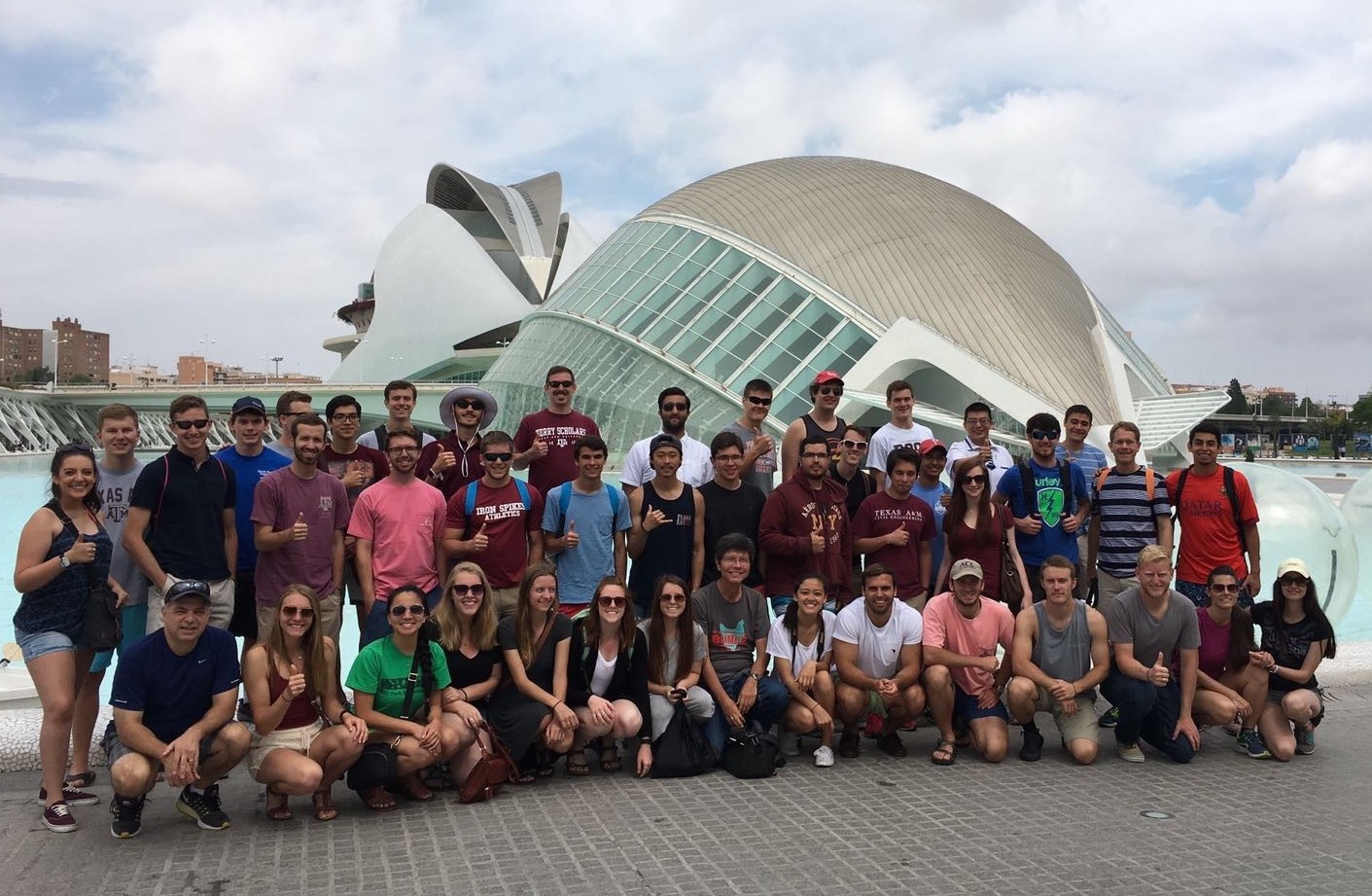
Exploring a different culture and country while learning mechanical engineering at the same time, that’s what this study abroad program can offer students through its six-week summer program in Spain.
Co-hosted by the Department of Mechanical Engineering and the Zachry Department of Civil Engineering at Texas A&M University, the faculty-led program will take place from May 20-June 29 in the Spanish region of Castilla–La Mancha, located in the heart of the Iberian Peninsula. The University of Castilla-La Mancha is a regional institution that consists of four campuses with 30,000 students. The program begins in the historic city of Toledo, and then shifts to the campus in Ciudad Real.
“It’s a life changing experience, especially if you’ve never been out of the country,” said Dr. Harry Hogan, a mechanical engineering professor who has participated in the program eight times. “Even if you have, spending six weeks in another country is different than a two-week vacation. For most of the students, the next time they’ll have the opportunity to spend six weeks in Europe will probably be when they retire.”
Tristan Honaker, Class of ’18, agrees. He said the “experience [had] been nothing short of spectacular,” and that he had developed relationships that would last beyond the program.
Jadha Gunawan, Class of ’18, said he originally had concerns before joining the program because of the cost and traveling to a country where he was not fluent in the language, but they were quickly dispelled.
“After participating in the program, I can say that it was one of the best decisions I have made in my life,” Gunawan said. “Being exposed to a whole new culture was worth every penny. It was nice participating in a program where a lot of the trips were already planned out by the faculty. Spain is a really big country and I would not have known where to start.”
Participants in the program said the six weeks were an opportunity to step outside their comfort zone and have a unique experience where students have the opportunity to learn about different cultures and themselves.
“It allows engineers to think more outside the box,” Gunawan said. “Being exposed to a different culture lets us realize that…we may need to be able to share/pitch our ideas and knowledge to people outside of our own country later in the industry. Being exposed to a different culture also gives us an advantage in the sense that we get exposed to different engineering solutions done by other people in the world.”
Students from the University of Castilla-La Mancha also participate in the classes, Hogan said, but they usually don’t fully take the courses as they are finishing their own spring semester with exams and projects. However, the Texas A&M students will have time to be able to learn from their interactions with these students from the host university.
The six-week program also includes planned excursions for three of the five weekends students will be abroad. The schedule allows for several four-day weekends too, which Hogan said makes the program intensive both inside and outside the classroom. Trips include technical and cultural trips to provide students a more immersive experience.
“It’s a lot to get in six hours of an engineering class in six weeks,” Hogan said. “We work pretty long and hard while we’re there, but then we have three- or four-day weekends.”
Students have the other weekends free, and most students use this time to travel in smaller groups to other locations in Spain or throughout Europe.
Another hallmark of the program, Hogan said, is that students have the opportunity to stay with host families. Once accepted into the program, students fill out a housing questionnaire to best match them with a host family, although a host family is not guaranteed.
Former participants said they found their host families to be instantly welcoming and friendly.
“One thing I did not expect was the level of care and interaction you should expect if you live with a host family. I now have a mamà, a papà and two little brothers, in addition to my original family,” said Ross Curran, Class of ’18.
The mechanical engineering track for Summer 2018 will be taught by Dr. Daniel McAdams, associate department head for Graduate Programs, and the courses are MEEN 368 (Solid Mechanics in Mechanical Design) and MEEN 475 (Materials in Design), which Hogan said are required courses for mechanical engineering majors.
While knowing Spanish is not a requirement to participate in the program, there are some qualifications for students, including;
- A minimum 2.5 GPA
- Good academic standing with university
- Participants are required to attend all program specific orientations
Hogan said some students may hesitate to apply because they might lose the chance for a summer internship. However, the opportunity for international learning about other cultures can have an impact on future employers as well.
“If I was an employer and saw that a student has taken the time, effort, investment and expense to do a study abroad program, it tells me that they’re probably a little more adventuresome,” Hogan said. “They’re probably more open-minded and more interested in other cultures and willing to take risks.”
The official deadline for registration is Feb. 16, 2018. Acceptance is on a first-come first-served basis.